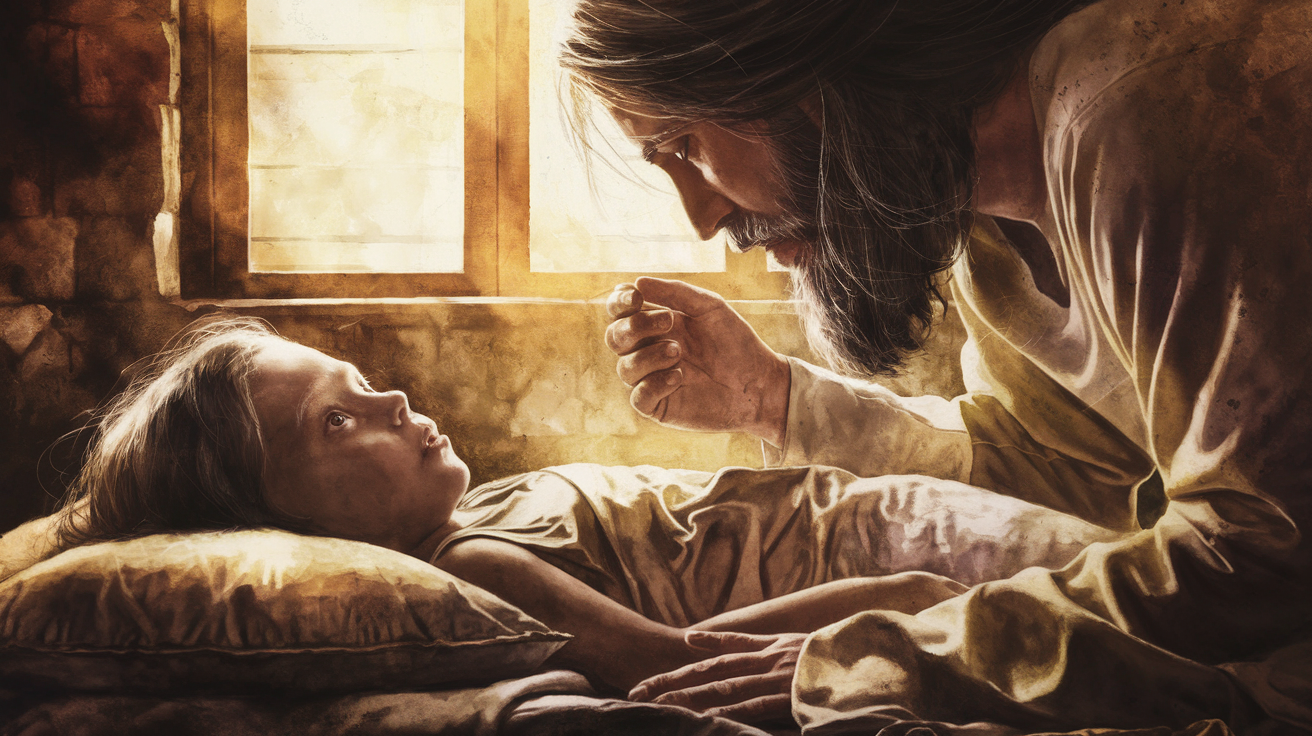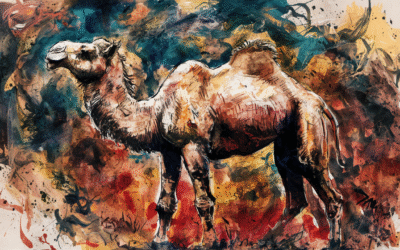In Mark 5:35-43, we encounter a deeply moving story of faith, doubt, and the power of God’s will. Jairus, a synagogue leader, approaches Jesus with a desperate plea to heal his dying daughter. His request is urgent, as time is of the essence. Yet, what happens next pushes both his faith and understanding to the limit. Jesus delays His arrival, and in that time, the little girl dies. Jairus’ hope seems shattered—what was once possible now feels impossible. But Jesus’ response is a profound reminder that God’s plans often transcend our expectations.
A Father’s Desperate Faith
Jairus’ faith is admirable. He comes to Jesus, believing that if Jesus just lays hands on his daughter, she will be healed (Mark 5:23). This is the hope of a father who is willing to do whatever it takes to save his child. Jairus’ request is reasonable, and it is a request many of us can relate to—seeking healing, deliverance, or rescue when things seem dire.
But as the story unfolds, we see a surprising turn of events. While Jesus is still on His way to Jairus’ house, a woman with a bleeding condition interrupts the journey. Jesus stops to heal her, taking time to address her needs. Meanwhile, Jairus’ daughter dies. News of her death reaches Jairus, and his heart must have sunk. His greatest fear has come to pass, and it seems like all hope is lost. The dream of his daughter being healed is gone.
God’s Timing: A Greater Miracle
It is at this point that Jesus delivers words of comfort: “Do not fear, only believe” (Mark 5:36). Jesus tells Jairus to continue trusting, even though the situation appears hopeless. But the real turning point comes when Jesus arrives at Jairus’ home and tells those gathered that the girl is only sleeping. When He enters the room and raises her from the dead, a miracle even greater than healing takes place. Jairus wanted his daughter healed, but God’s plan was to resurrect her, showing Jairus—and everyone present—that Jesus holds power over life and death itself.
This moment is not an act of cruelty on Jesus’ part. Though it may have felt cruel to allow the little girl to die, this delay was actually a blessing. By allowing Jairus to reach the brink of hopelessness, Jesus stretched his faith to its breaking point. But in doing so, He positioned Jairus and his daughter to experience an even greater miracle than they had hoped for.
Beyond Our Understanding: Faith that Grows
Often, when we pray and ask God for something—whether it’s healing, provision, or deliverance—we have a specific outcome in mind. And when we don’t see that outcome, we may question God’s goodness or His plan. We may feel abandoned, as though our prayers have been ignored. But Jesus’ actions here show us that God’s timing and His will are often beyond our understanding, and His plans for us are greater than what we can imagine.
God does not push our faith to make us suffer. He allows us to experience moments of testing so that our faith can grow. It’s through those moments of doubt, fear, and uncertainty that we are invited to trust Him more deeply. Just as a muscle must be stretched and challenged to grow stronger, so too must our faith be stretched so that it can expand to receive the greater miracles God has in store for us.
Jairus wanted to see his daughter healed, but what he received was the gift of witnessing her resurrection. Had the healing happened right away, it would have been wonderful, but it wouldn’t have been the same. The resurrection was the greater miracle—the demonstration of God’s power over death, a testimony that would remain with Jairus and his family forever.
Trusting in God’s Greater Plan
We are often quick to pray for what we want, but we must learn to trust in God’s plan, even when it differs from our own. God’s ways are not our ways, and His thoughts are not our thoughts (Isaiah 55:8-9). He sees the bigger picture, and His delays are not denials. When we find ourselves in situations that challenge our faith, we must remember that God may be preparing us for a miracle far beyond our initial request. We may want healing, but God may have resurrection in mind.
When we cry out to God in times of desperation, we should do so with the understanding that His will is always perfect. He doesn’t push our faith to the breaking point to cause us pain, but rather to deepen our trust and expand our capacity for the miraculous. If we can hold on to faith during those moments of doubt, we open ourselves to the possibility of experiencing something even greater than we asked for.
Conclusion: Trusting His Plan
In the story of Jairus’ daughter, we see the profound truth that God’s plan is often bigger than our own. Jairus wanted his daughter healed, but Jesus had a far greater plan—resurrection. When our own prayers seem unanswered or delayed, let us not lose heart. Let us trust that God knows exactly what He is doing, and that His timing is perfect.
Faith in God’s plan requires surrender—the willingness to accept that He knows what’s best for us, even when we don’t understand the path He’s leading us on. So, the next time we face a challenge, a trial, or a moment of waiting, may we echo the words of Jesus to Jairus: “Do not fear, only believe.” For in His plan, not ours, lies the greatest miracle of all.




